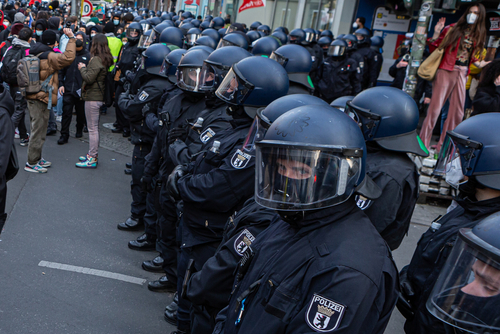Germany has shattered decades of post-war military restraint by permanently deploying troops in Lithuania, a move sure to draw a sharp response from Moscow. As tensions rise in Eastern Europe, this bold step reinforces NATO’s collective defense but also raises serious concerns over how Russia will react to an expanding Western military presence near its borders.
Germany Breaks Post-War Military Tradition
In a historic shift, Germany has activated its first-ever permanent foreign military deployment since World War II. The move comes amid growing fears of Russian aggression, following Vladimir Putin’s full-scale invasion of Ukraine in 2022 and repeated threats toward NATO members.
The 45th Armored Brigade, under the command of Brigadier General Christoph Huber, was formally activated near Vilnius, Lithuania. German Defense Minister Boris Pistorius called it a defining moment, stating, “This is the first time that we have permanently stationed such a unit outside Germany.”
NATO’s Eastern Flank Strengthens
Germany’s new brigade will eventually house 5,000 troops in Lithuania, which shares borders with the Russian exclave of Kaliningrad and Moscow-aligned Belarus. Currently, only 150 German soldiers are on the ground, but that number is expected to increase to 500 by the end of the year and reach full capacity by 2027.
History repeats itself
Germany sends 5,000 troops to Lithuania in first permanent troop deployment out of borders — and at Russia's doorstep — since WWII pic.twitter.com/BLRRs7oD8Q
— Ignorance, the root and stem of all evil (@ivan_8848) April 1, 2025
Brigadier General Huber made the mission clear: “We have a clear mission: to ensure the protection, freedom, and security of our Lithuanian allies on NATO’s eastern flank. In doing so, we also protect NATO territory — and Germany itself.”
This deployment reflects NATO’s forward defense strategy, ensuring combat-ready forces are positioned at key flashpoints to deter any Russian aggression.
Germany’s Military Overhaul and Putin’s Likely Response
Germany’s military is undergoing a dramatic transformation. Defense Minister Pistorius has pushed to expand the Bundeswehr’s personnel target to 230,000 troops, an increase from the current 203,000, to meet NATO’s 2025 defense capability targets.
Following Russia’s invasion of Ukraine, Germany significantly increased military spending, reaching NATO’s 2% GDP defense benchmark for the first time in decades. However, this has strained Berlin’s budget, contributing to a political crisis that recently collapsed Chancellor Olaf Scholz’s coalition government.
Germany has launched a permanent foreign troop deployment on NATO’s eastern flank.https://t.co/BfM7HgQGlQ
— POLITICOEurope (@POLITICOEurope) April 1, 2025
Germany’s military leadership is sounding the alarm:
“We are threatened by Russia. We are threatened by Putin. We have to do whatever is needed to deter that,” said General Carsten Breuer.
Moscow is unlikely to ignore this development. Russia has long viewed NATO expansion as a direct threat, and Germany’s move could prompt Putin to increase troop deployments in Kaliningrad, escalate hybrid warfare tactics, or push for closer military ties with China and Iran.
This deployment cements Germany’s transformation from a hesitant military player into a leading force within NATO—but it also risks deepening the standoff between Russia and the West. The world will be watching closely to see how Putin responds.

